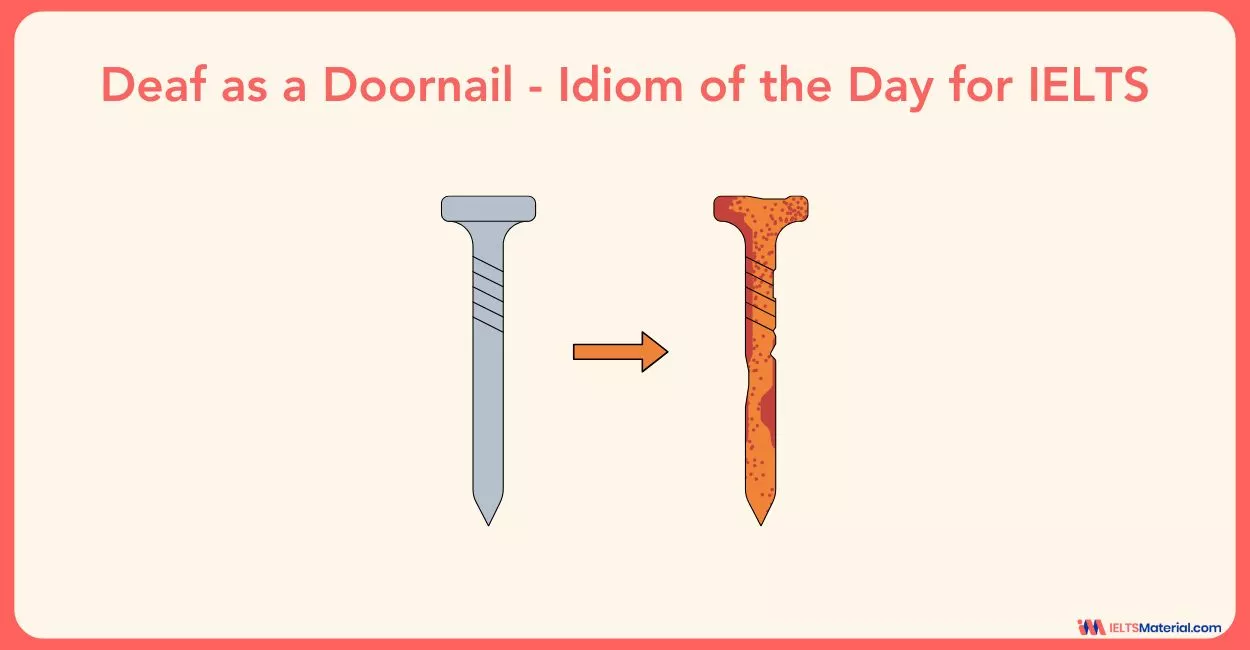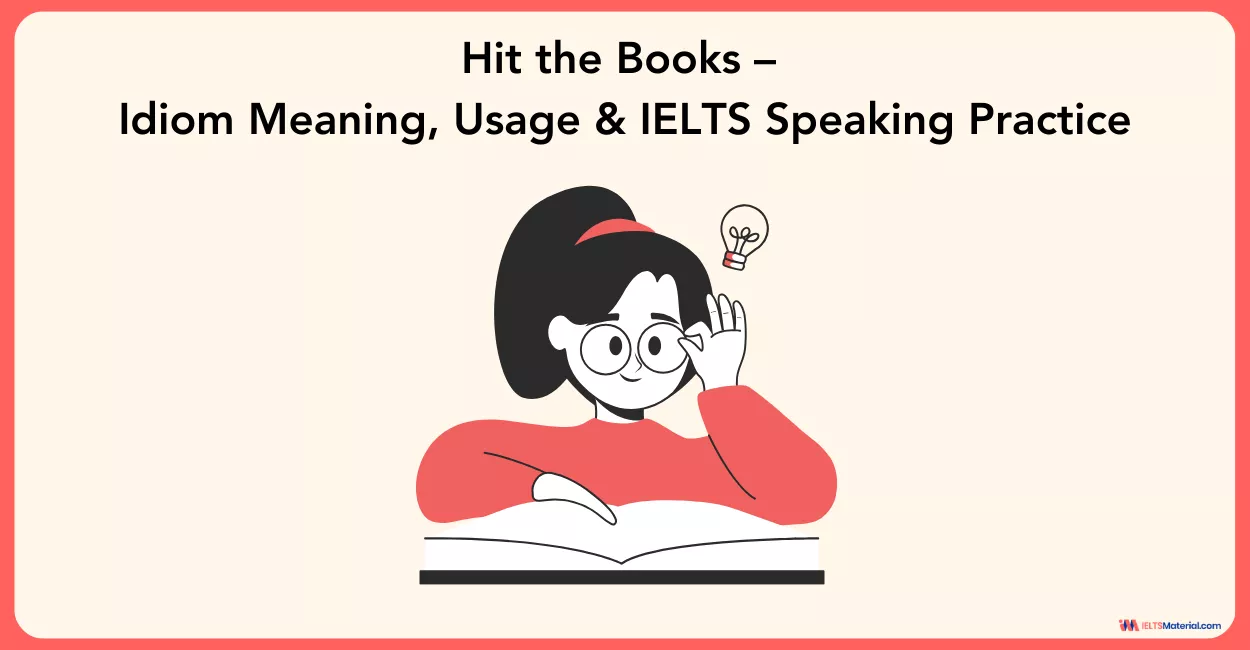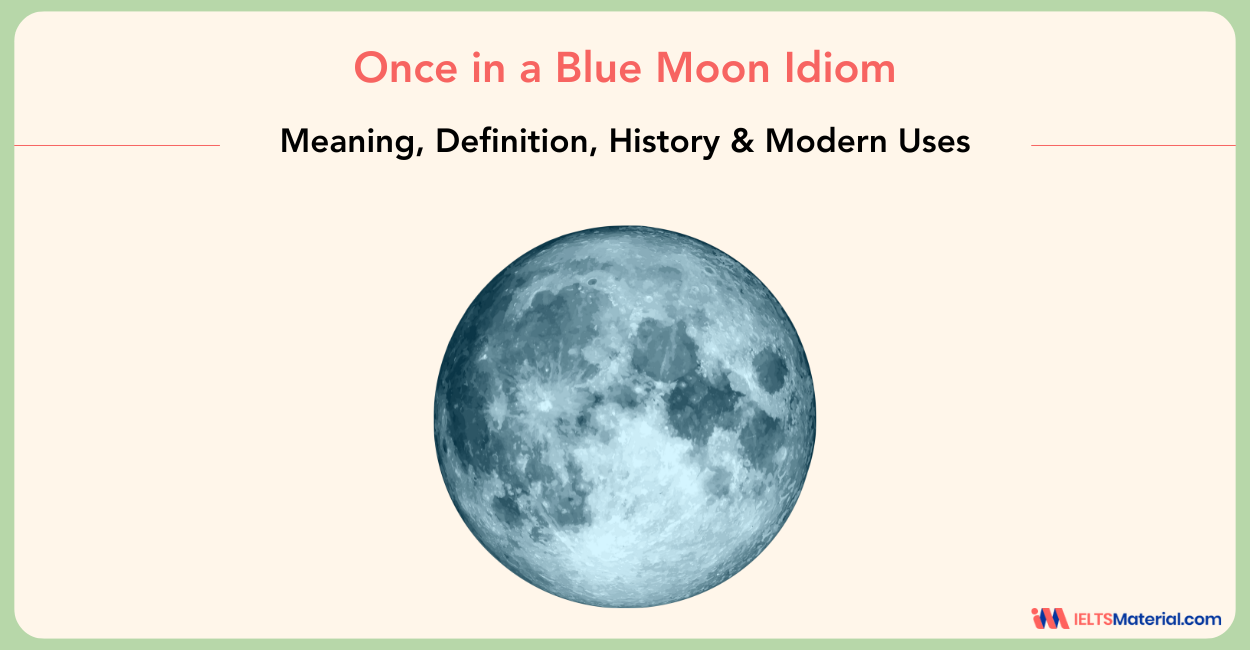Hit the Books – Idiom Meaning, Usage & IELTS Speaking Practice
5 min read
Updated On
-
Copy link
Learn how to use the idiom “Hit the Books” naturally in IELTS Speaking in our blog. Explore its meaning, examples, sample answers, and practice questions to improve fluency and impress the examiner.
Table of Contents
- What Does “Hit the Books” Mean?
- Origin and Background of the Idiom: To Hit The Book
- Examples of “Hit the Books” in Sentences
- When to Use “Hit the Books” in IELTS Speaking
- Related Idioms and Study Phrases
- Common Mistakes to Avoid
- Sample Answer Using the Idiom
- Vocabulary Expansion: Academic Phrases for IELTS
- Exercises to Test Your Knowledge

Limited-Time Offer : Access a FREE 10-Day IELTS Study Plan!
To impress the examiner in the IELTS Speaking test, it's not just about speaking fluently, it's also about demonstrating a rich and varied vocabulary. Using idioms naturally and appropriately can boost your Lexical Resource band score significantly. One such commonly used and easy-to-apply idiom is “Hit the books.”
What Does “Hit the Books” Mean?
Definition:
To begin studying intensely or with great focus, especially when preparing for an important exam or academic task.
This idiom is widely used by students, teachers, and parents to describe serious or concentrated studying. It's an informal yet common expression in English-speaking countries, often used in educational or motivational contexts.
Despite the literal image, "hit the books" has nothing to do with physically striking books. It is metaphorical and means devoting time and effort to study or academic preparation.
Origin and Background of the Idiom: To Hit The Book
The phrase originated in American English in the early 1900s. The word hit in informal expressions typically means “to start or begin doing something vigorously” (e.g., hit the road, hit the gym). In this idiom, it refers to starting intense study.
Over time, “hit the books” became a widely accepted way to describe situations where a person needs to focus seriously on their academic work—often under pressure from upcoming exams or deadlines.
Want to master more high-band IELTS vocabulary for the IELTS exam? Book a Free Demo Class today.
Examples of “Hit the Books” in Sentences
To use idioms effectively in IELTS Speaking, it's crucial to understand their context. Here are some example sentences to show how “hit the books” can be naturally used:
- “If you want to pass IELTS with a Band 8, you’ll really have to hit the books and practice every day.”
→ This sentence shows the urgency and seriousness needed in exam preparation. - “My sister has been hitting the books every night this week. Her finals are coming up next Monday.”
→ This illustrates consistent and focused studying over a period of time. - “Turn off your phone and hit the books if you want to improve your grades!”
→ Often used by teachers or parents to encourage academic discipline.
When to Use “Hit the Books” in IELTS Speaking
This idiom is most effective when you're talking about study habits, time management, exam preparation, or student life in general.
IELTS Speaking Part 1
Q: Do you like studying?
A: “I do, especially when I’m motivated. But during exams, I really have to hit the books and reduce my screen time.”
IELTS Speaking Part 2
Cue Card: Describe a time when you studied for a long time.
A: “Last year, I had to hit the books for over a month to prepare for my final year project and the IELTS exam. I was studying around six hours a day and using practice tests regularly.”
IELTS Speaking Part 3
Q: Do students today study more than in the past?
A: “Yes, definitely. With increasing competition and higher academic expectations, many students are forced to hit the books harder than ever.”
Using such idioms naturally in your answers reflects fluency, cultural understanding, and command over the language.
Grab the newly launched Vocabulary for IELTS (Essential words for popular topics in IELTS) to level up your preparation.
Related Idioms and Study Phrases
Adding a few more related expressions will help you vary your language and sound more like a native speaker:
| Idiom / Phrase | Meaning | Example |
|---|---|---|
| Burn the midnight oil | Study or work late at night | “I had to burn the midnight oil before my final exam.” |
| Cram for an exam | Study a lot in a short time | “She crammed all night before her chemistry test.” |
| Brush up on | Revise or refresh knowledge | “I’m brushing up on my English grammar before the test.” |
| Pull an all-nighter | Stay awake the entire night to study | “I pulled an all-nighter to finish my research paper.” |
| Bury oneself in books | Spend all your time studying | “He buried himself in books before the law school entrance exam.” |
Common Mistakes to Avoid
When using idioms, it's important to avoid incorrect usage:
- Literal usage: Don't use the idiom when you're actually reading books for fun. It’s about serious studying.
- Incorrect form: Say “hit the books,” not “hit books” or “hit with the books.”
- Misuse in formal writing: This idiom is suitable for spoken English or informal writing, not academic essays.
Sample Answer Using the Idiom
Q: How do you usually prepare for exams?
Sample Answer:
“Well, I usually make a study plan and then hit the books hard about two weeks before the exam. I focus on my weak areas, do mock tests, and try to avoid distractions like my phone or social media.”
This sample shows natural idiom usage in the context of preparation and academic discipline.
Vocabulary Expansion: Academic Phrases for IELTS
If you want to improve your band score, try using a mix of idioms and academic phrases:
- Sit for an exam – To take an exam.
- Syllabus overload – Having too much to study.
- Time management skills – Organizing time effectively for study.
- Revise thoroughly – Review all material in detail.
Using a blend of formal and informal expressions demonstrates a wide range of IELTS Vocabulary, exactly what the examiner is looking for.
Exercises to Test Your Knowledge
Exercise 1: Fill in the Blank
“The final exam is approaching. You would delay your graduation plan unless you hit the ______ for the exam right now.”
A. papers
B. computers
C. magazines
D. books
Correct Answer: D. books
Exercise 2: Choose the Best Meaning
What is the meaning of “hit the books”?
A. To study very hard ✅
B. To read many books
C. To find interesting books
D. To be lazy
Correct Answer: A. To study very hard
The idiom “hit the books” is not only easy to understand but also incredibly relevant for IELTS candidates. It’s perfect for discussing academic challenges, preparation techniques, and study routines. Using idioms like this naturally in your speaking responses will showcase your fluency and flexibility in the English language—both critical to achieving Band 7 or higher. If you're aiming for top scores, follow the IELTS Exam Preparation Tips for Band Score of 8+ to further enhance your vocabulary and overall test performance.
Also check:
Explore IELTS Resources

Start Preparing for IELTS: Get Your 10-Day Study Plan Today!
Recent Articles

Kasturika Samanta

Prity Mallick

Nehasri Ravishenbagam





Post your Comments